More than 18,000 people responded to the 2021 freeCodeCamp New Coder Survey. This grants us all significant insight into how thousands of people all around the world are learning to code, and why they are choosing to do so.
We’ve released the entire dataset of participants’ responses to 49 questions we asked — under the Open Data Common License — on GitHub and Kaggle.
In the months that follow, dozens of data scientists, data enthusiasts, and researchers (myself included) will pour over the data and discover all kinds of insights about people who are learning to code.
For now, I’m going to give you a larger picture of the current state of new coders. I’ll focus on who they are, how they are learning, and what their career goals are.
And as a bonus, in the second half of this article, I’ll share insights from my ongoing qualitative research, and tell you about some learning strategies New Coders are adopting.
Who are the New Coders?
New Coders live all around the world.
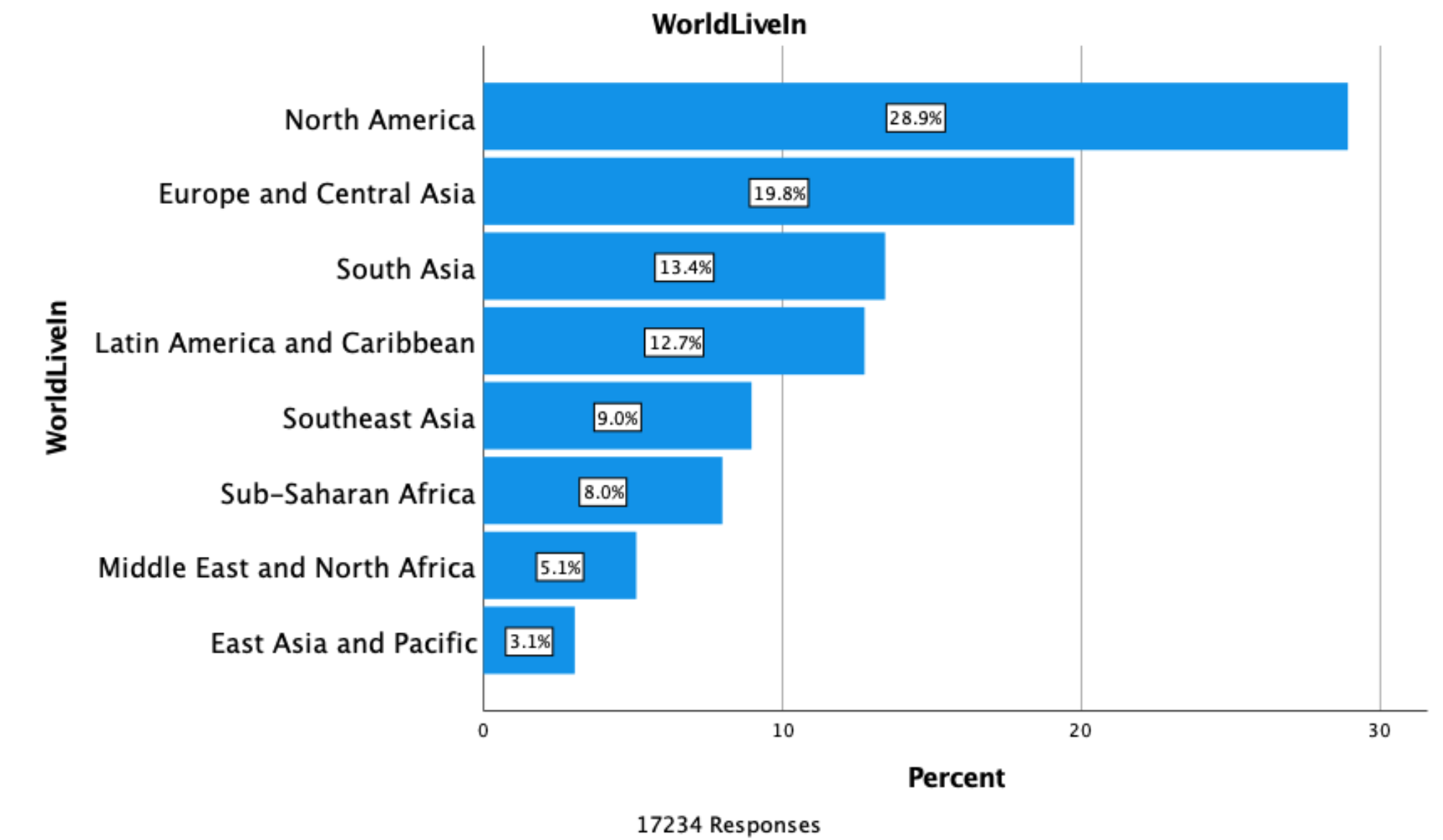
New Coders living in the US are not necessarily from tech-hub areas:

Their median age is 25. And roughly 28% of New Coders identify as women, nonbinary, transgender, or gender fluid. 70% identify as men, and the remaining 2% preferred not to say.
Here is the self-reported racial and ethnic composition of New Coders all around the globe:
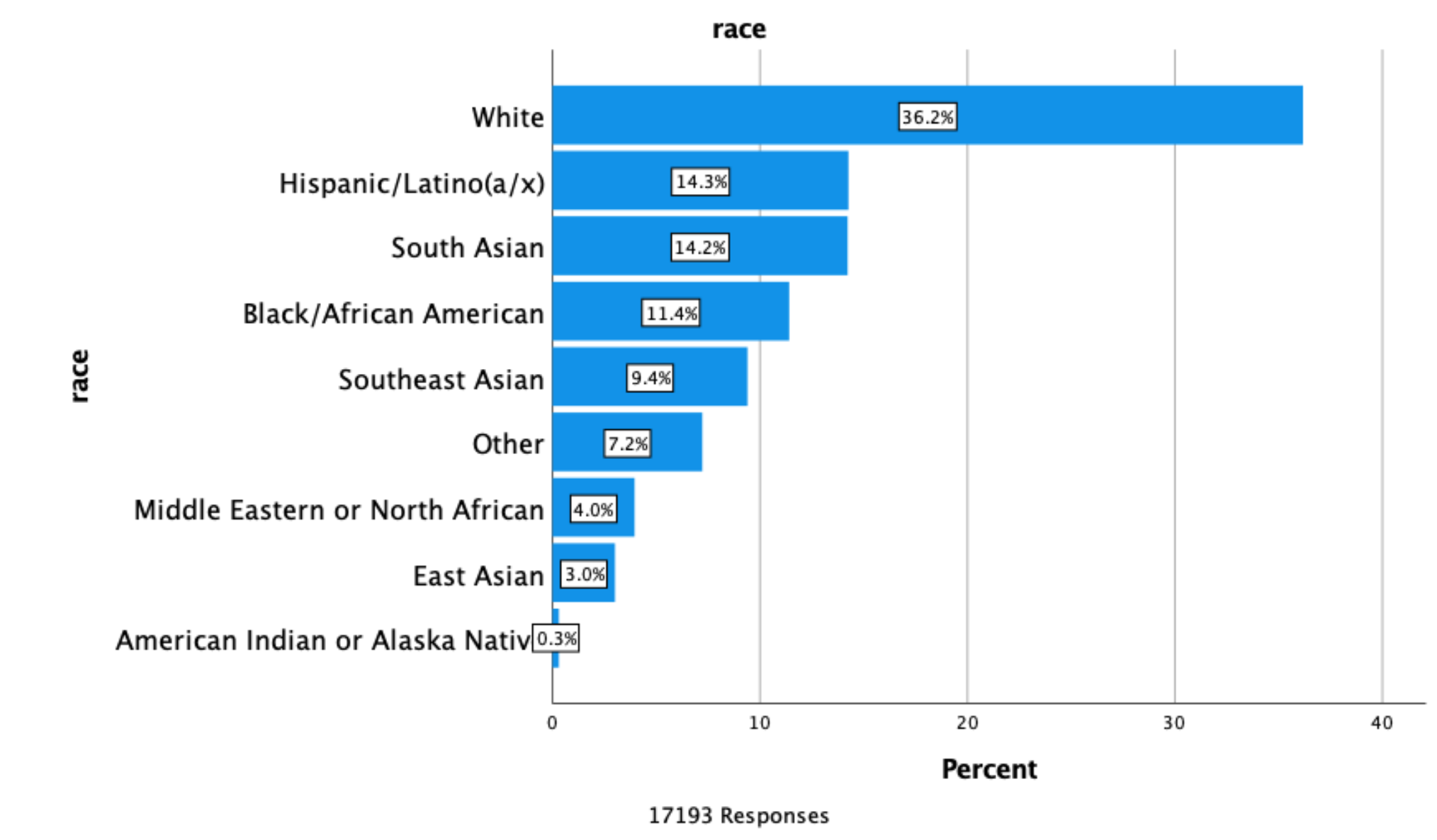
And here is the racial and ethnic composition of New Coders in the US:
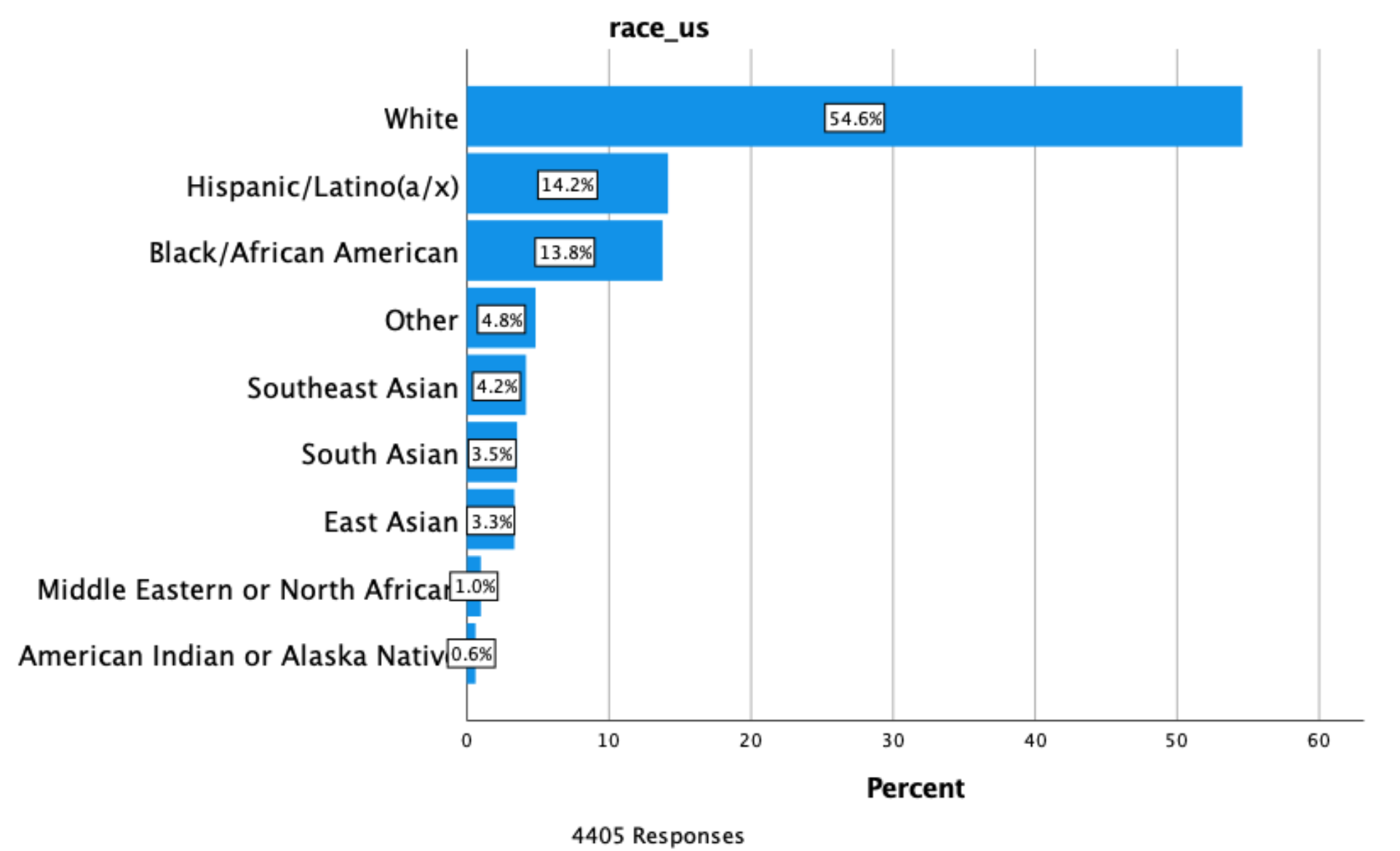
New Coders who started coding less than 5 years ago have been coding for 9.5 months on average. The median number of months they've been coding is 3 months.
The median time they spend on learning each week is 8 hours.
Only 10% of the respondents are already working as developers.
About 90% of those who are not already developers are interested in developer jobs.
About 33% of those who are interested in developer jobs are either already applying or planning to apply for developer jobs in the next 6 months, while 31% haven’t decided yet.
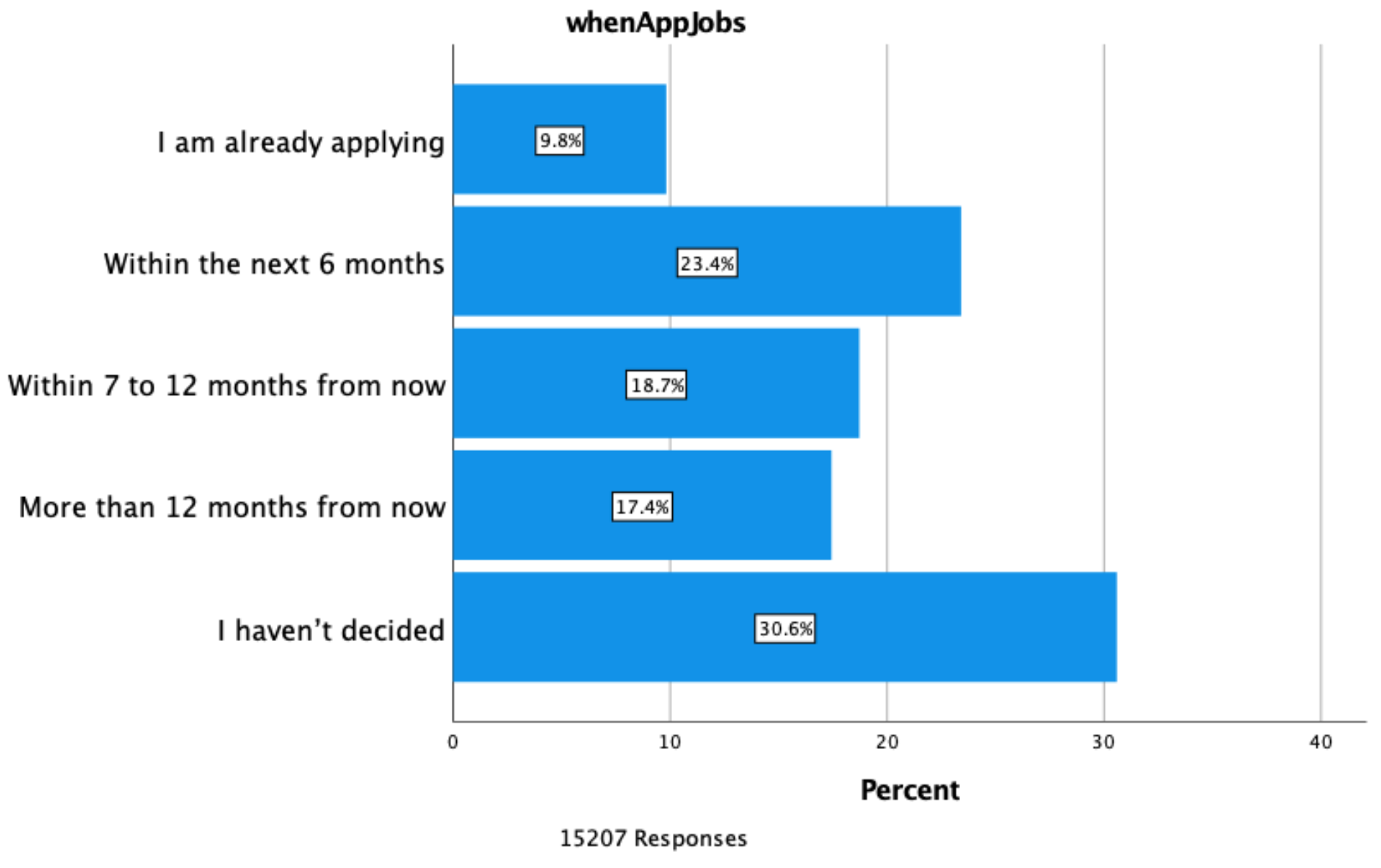
Most of them are open to relocating, or would consider relocating.
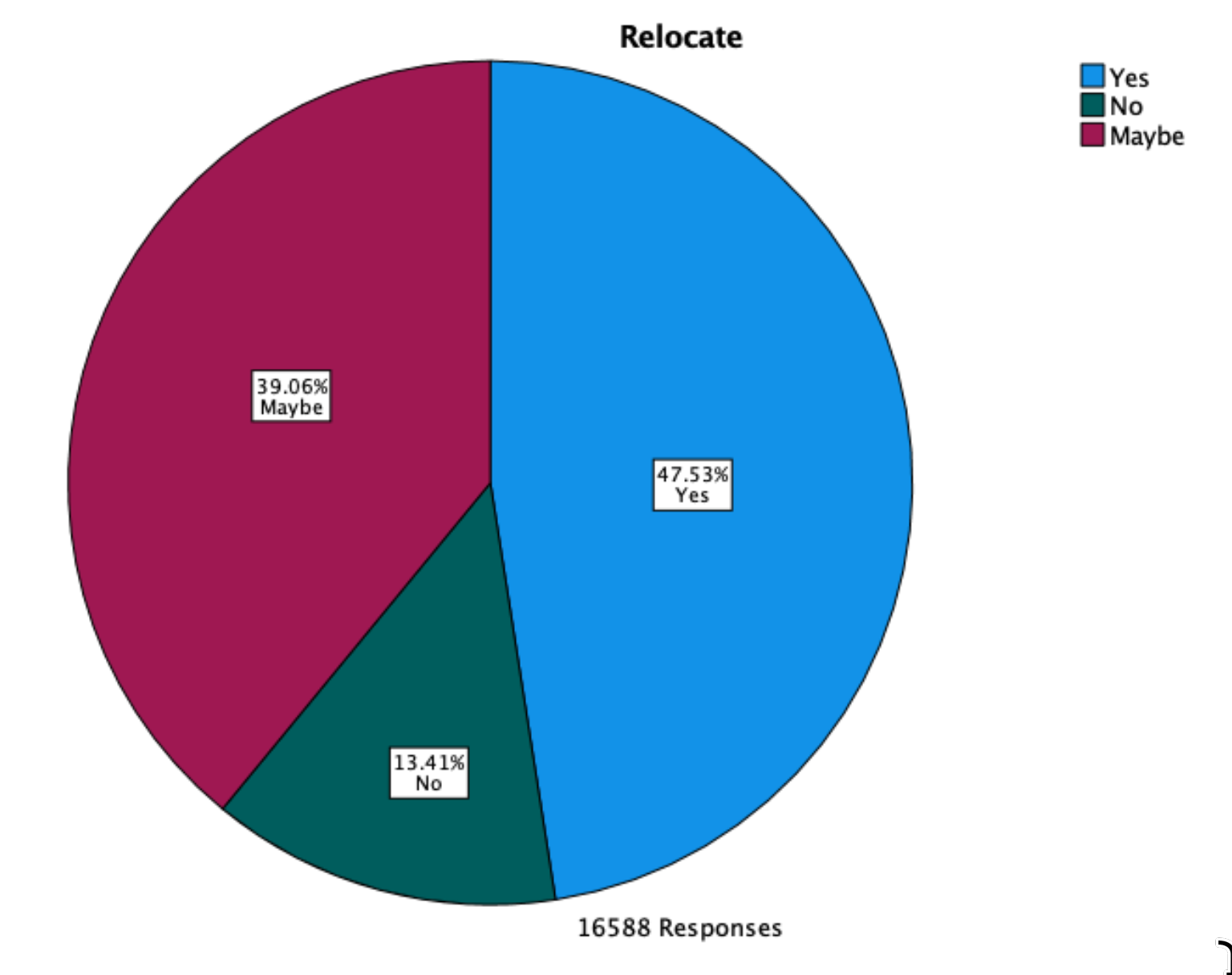
At least 45% of New Coders are currently working in some capacity.
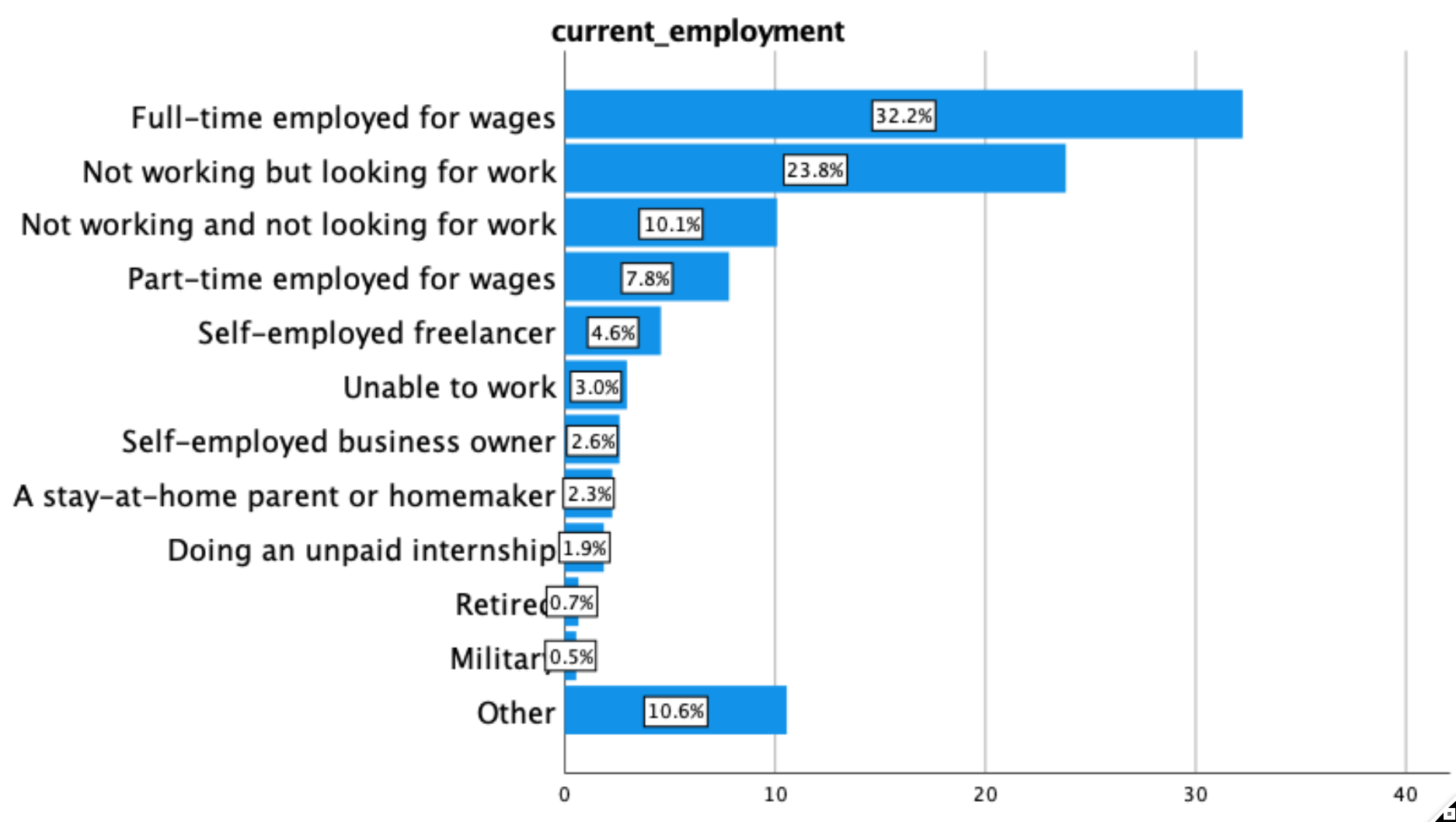
43% of New Coders hold at least a bachelor’s degree.
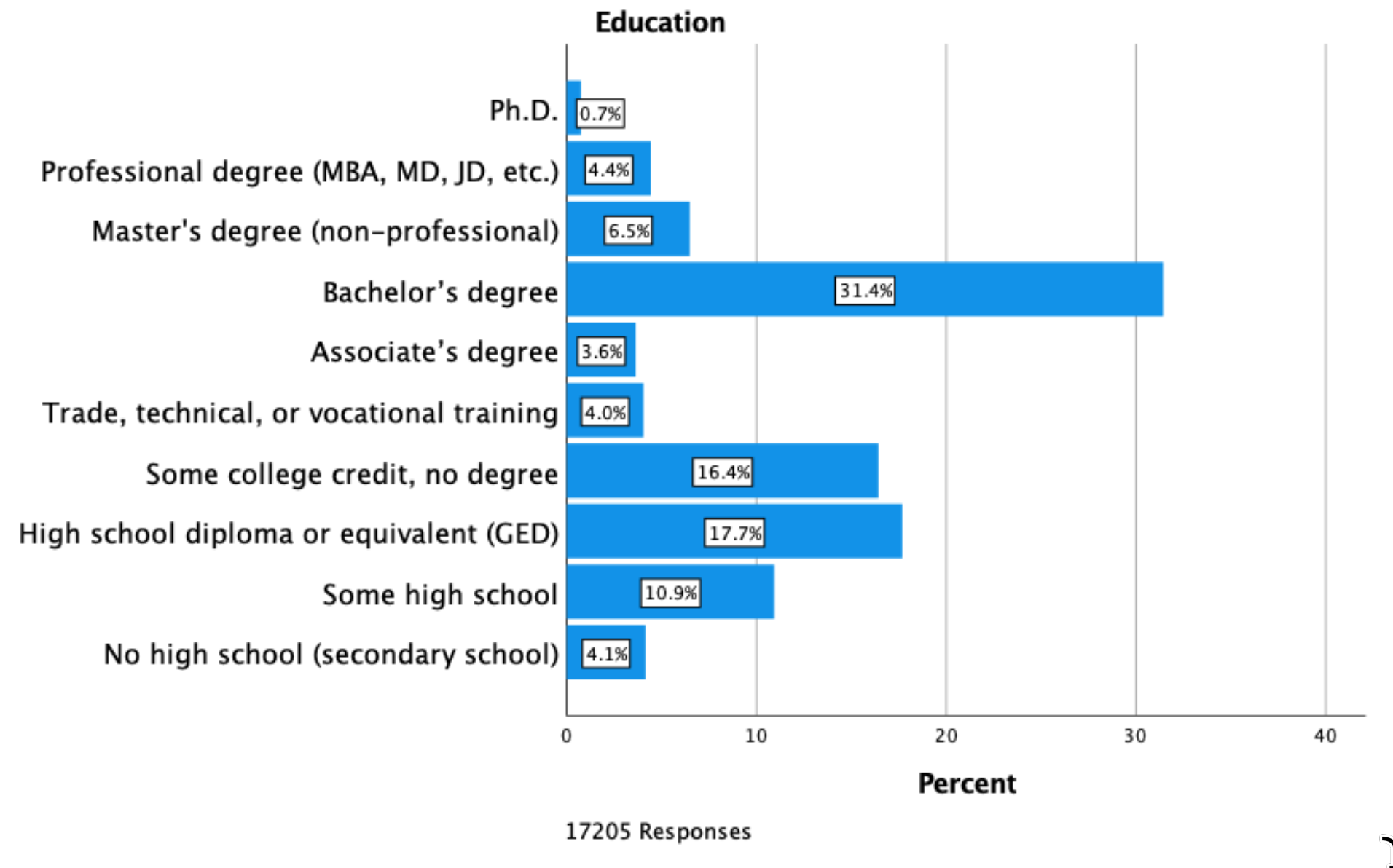
Only 20.5% of New Coders studied computer science, computer engineering, or software engineering.
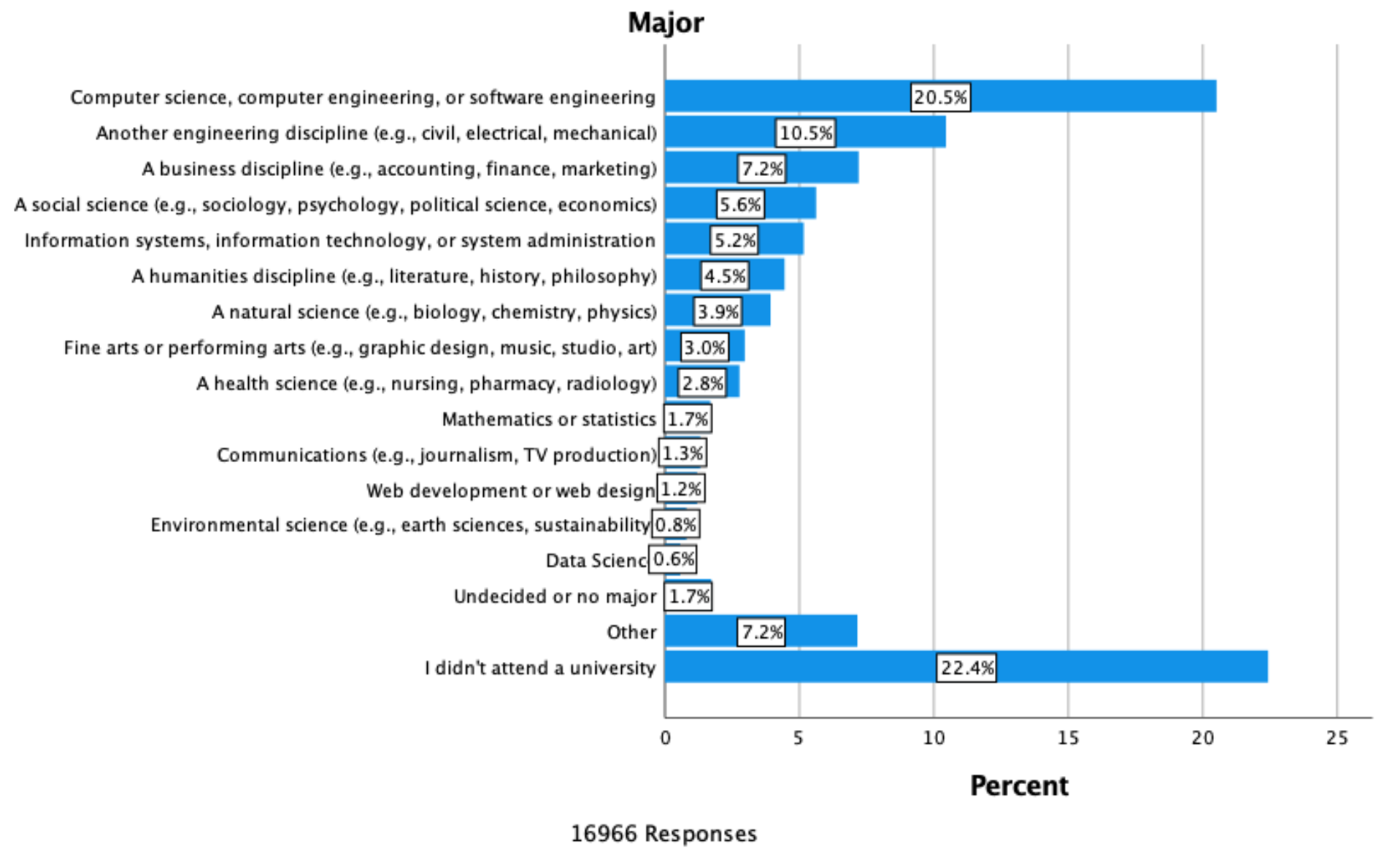
How New Coders Learn to Code
New coders use online resources the most when they're learning to code. Here are some resources they use:
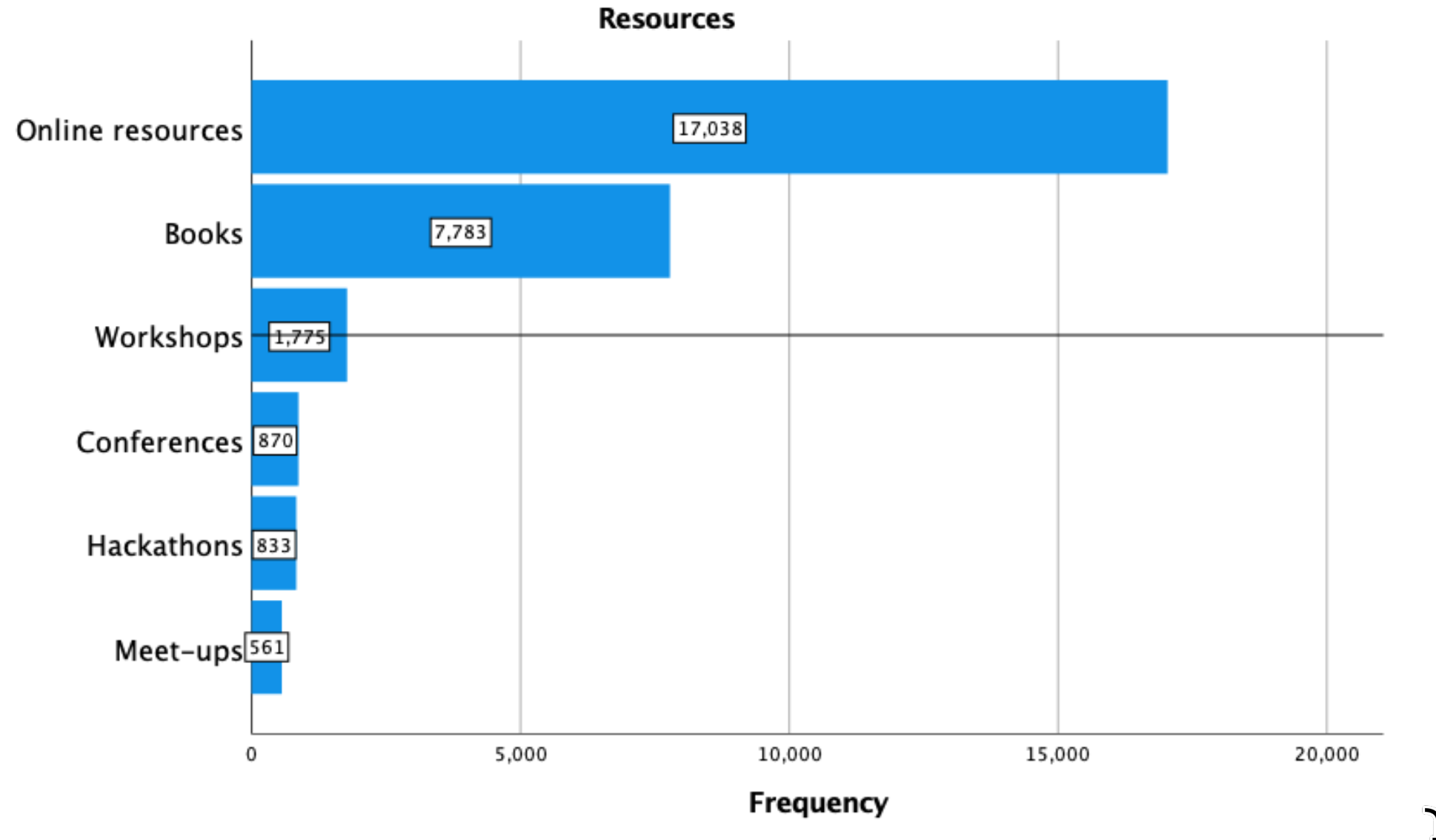
Online Resources they found the most useful are:
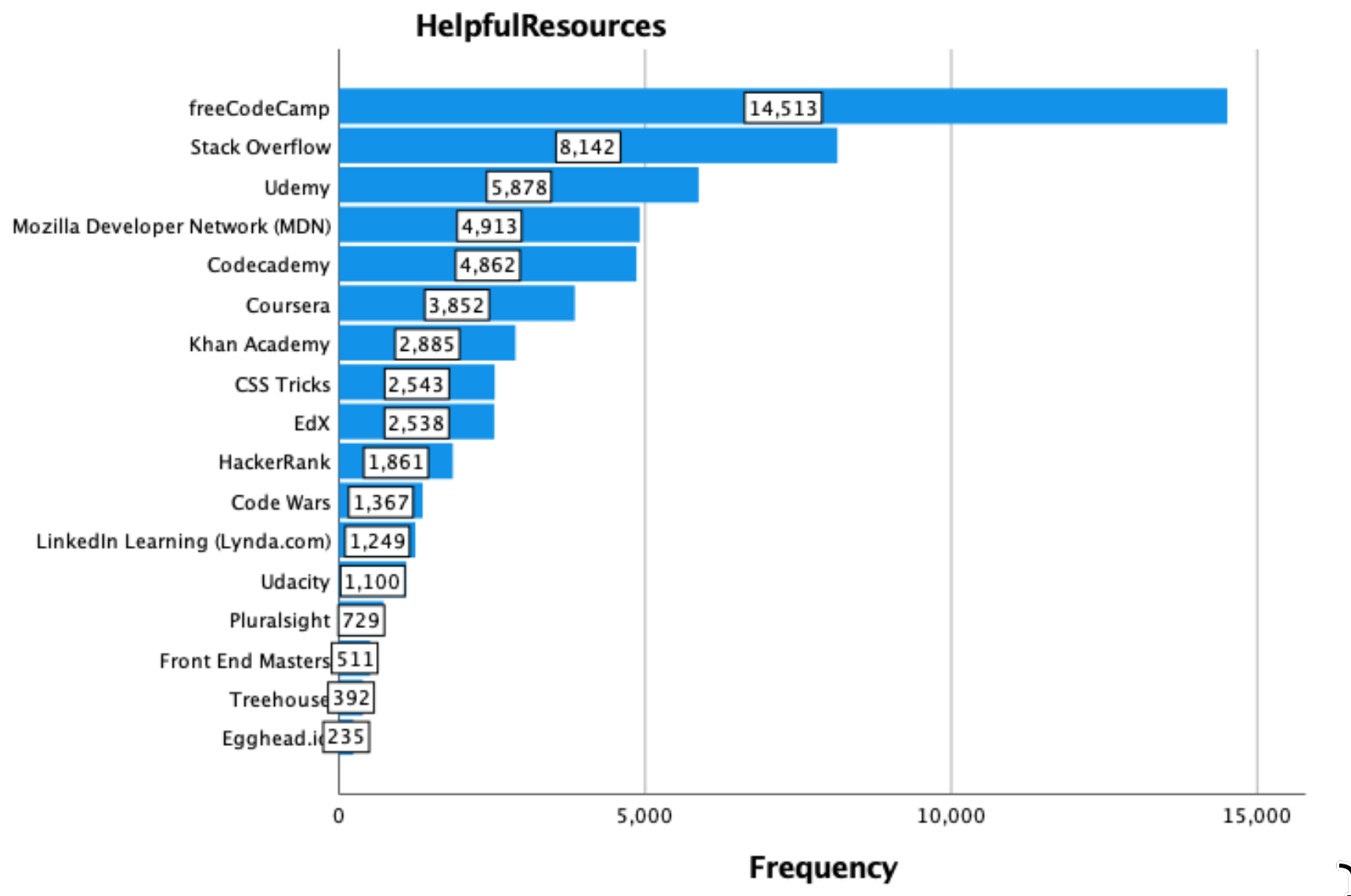
New Coders’ favorite coding related YouTube channels are:
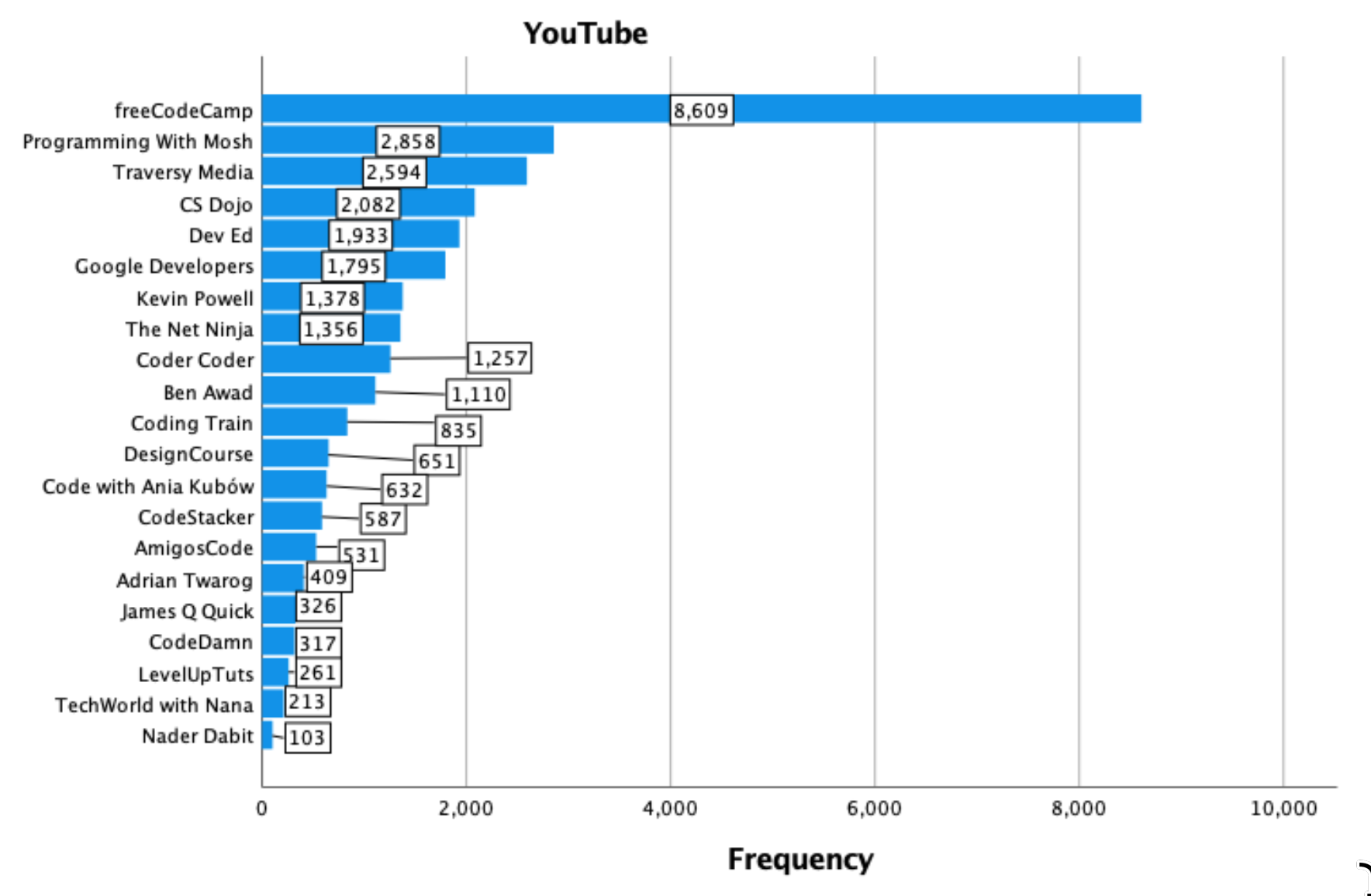
1,831 New Coders told us about their favorite coding related podcasts. Here is the top five:
- Code Newbie Podcast
- Learn Code With Me
- Syntax.fm
- Darknet Diaries
- Talk Python to Me
Why People are Learning to Code
More than 2/3 of New Coders learn to code in order to build a new career, start a business or their first career, or freelance.
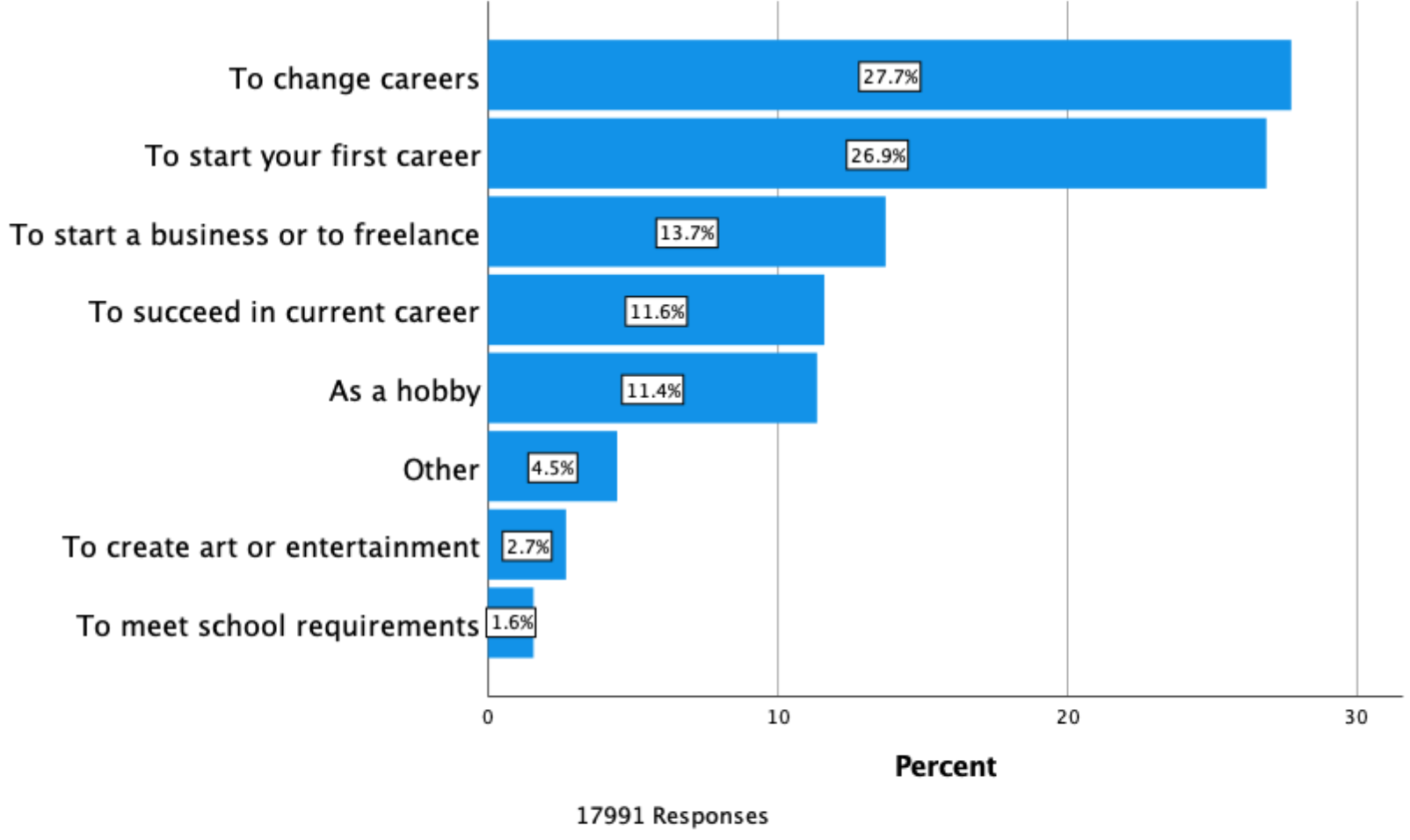
New Coder Career Expectations
We asked New Coders to choose up to 3 reasons why they are interested in software development careers. Here are the reasons they most frequently cited:

About 55% want to work for a multinational, medium-sized, or start-up company. 28.5% would prefer to freelance or start their own business.
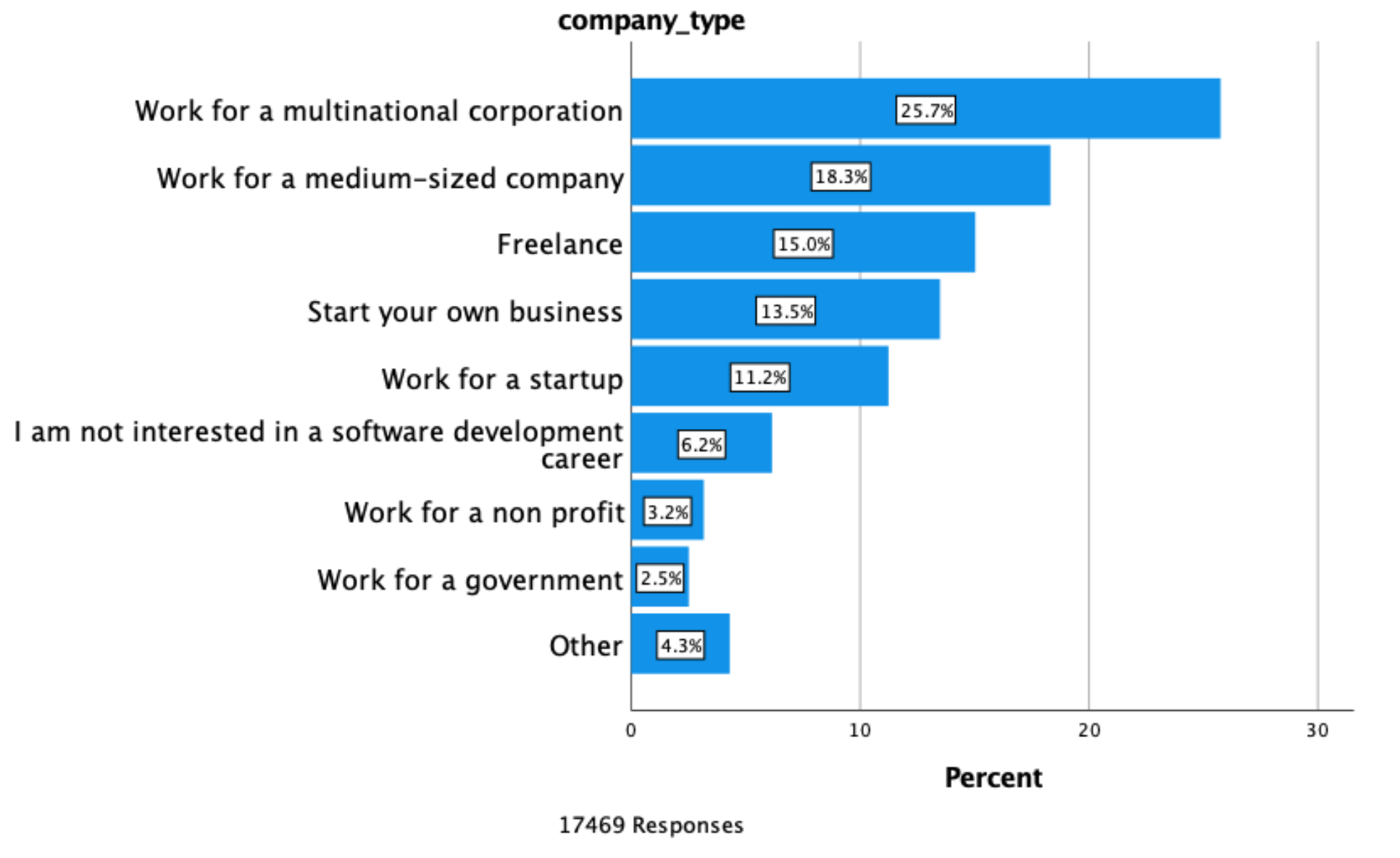
More than 1/3 of those who are interested in software development careers are interested in Full-Stack Web Development.
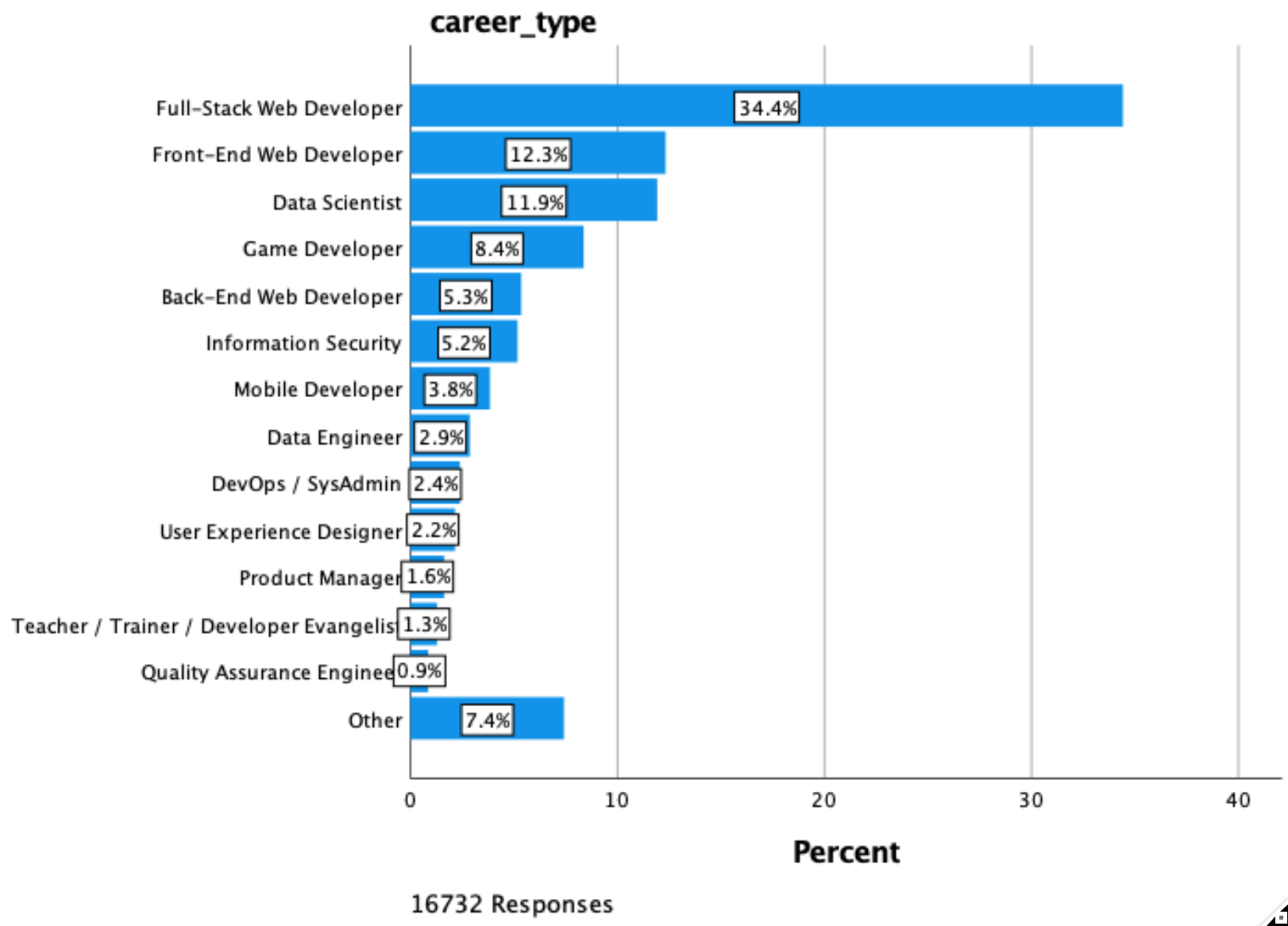
Over 93% want to work from home at least one day a week.
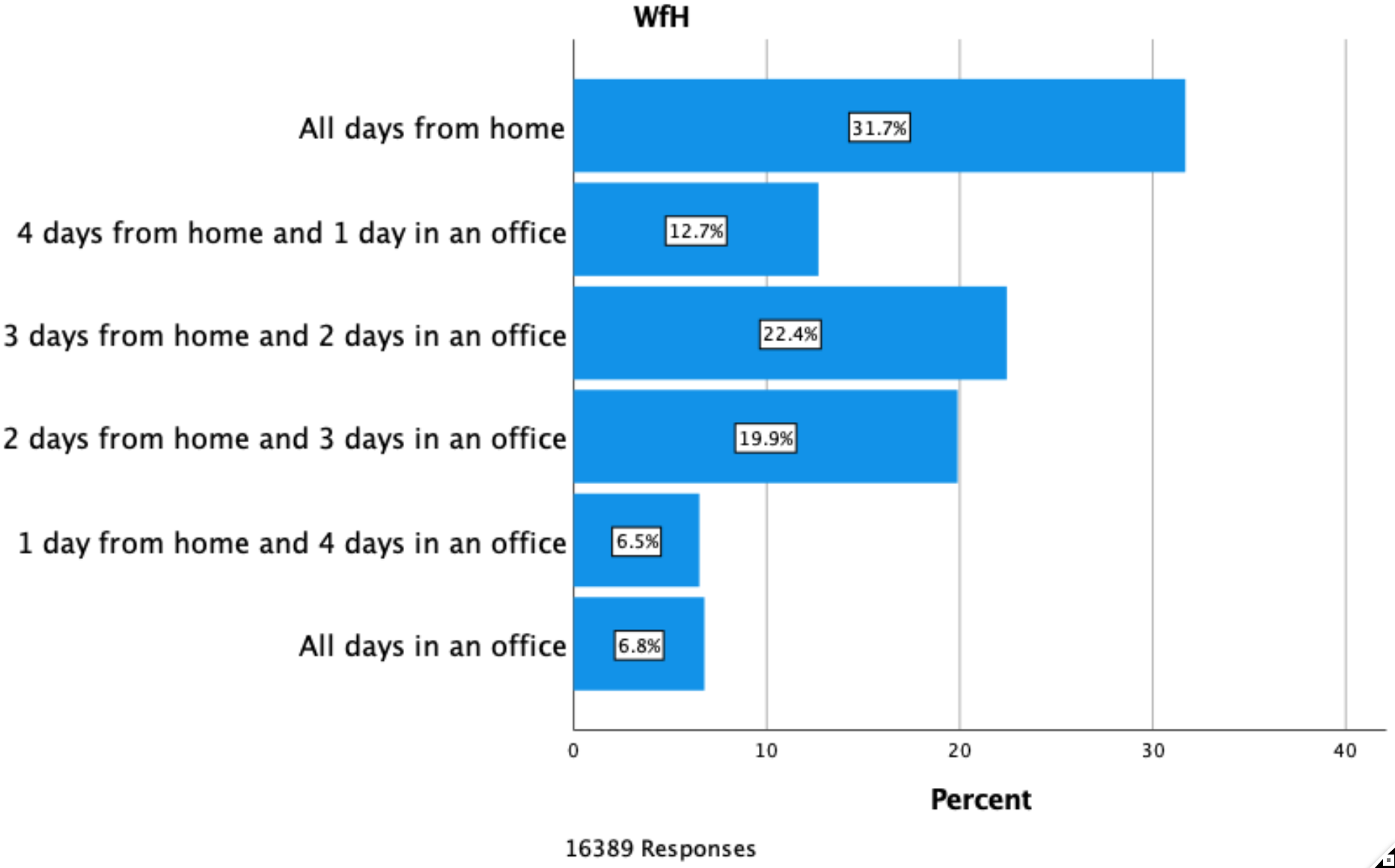
At their first developer job, globally New Coders expect to make:
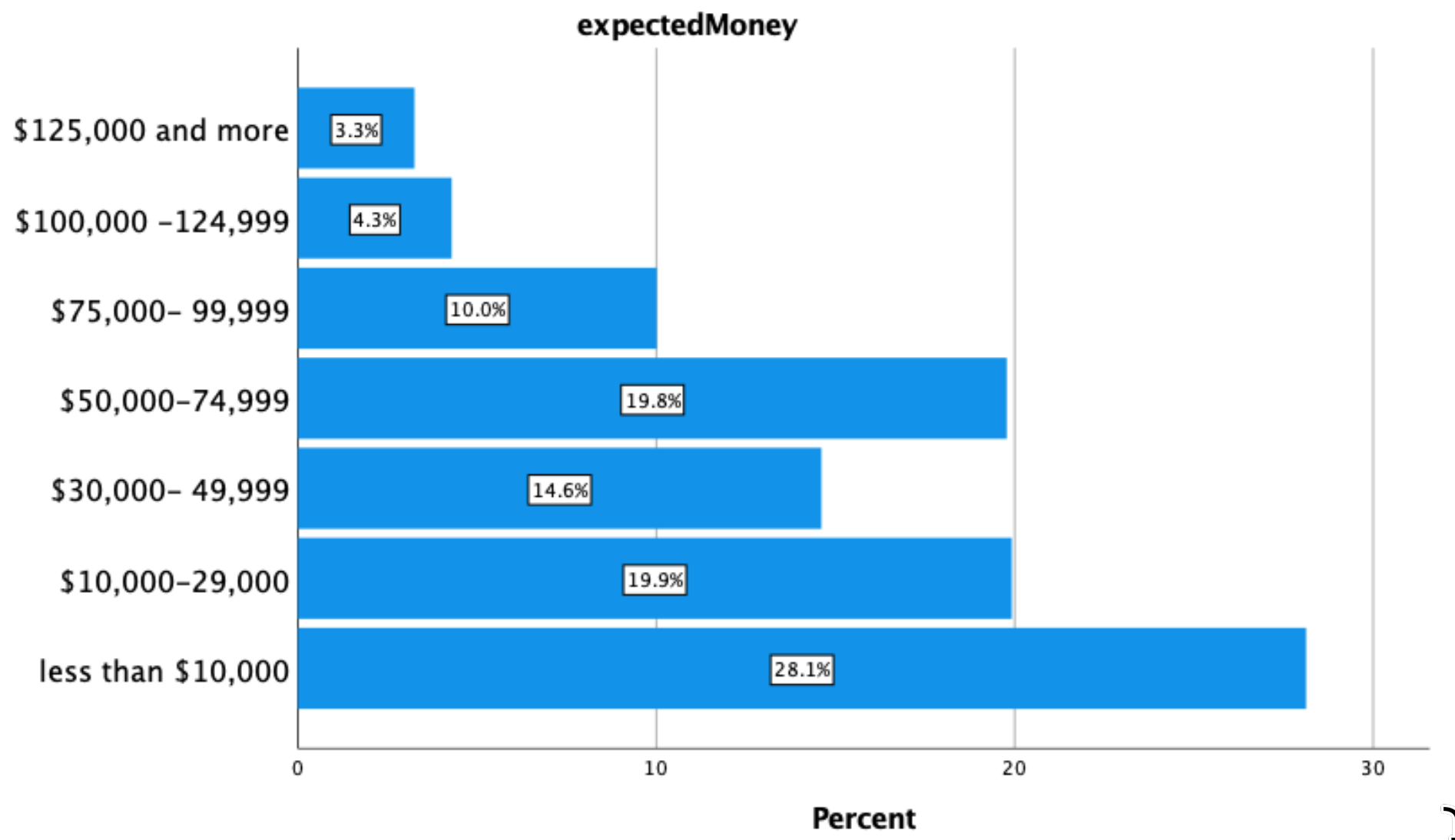
But since wages and cost of living can vary dramatically from country to country, it's more helpful to focus on a single country.
In the US, 39.5% of New Coders expect to make between US $50K to $75K at their first developer job.
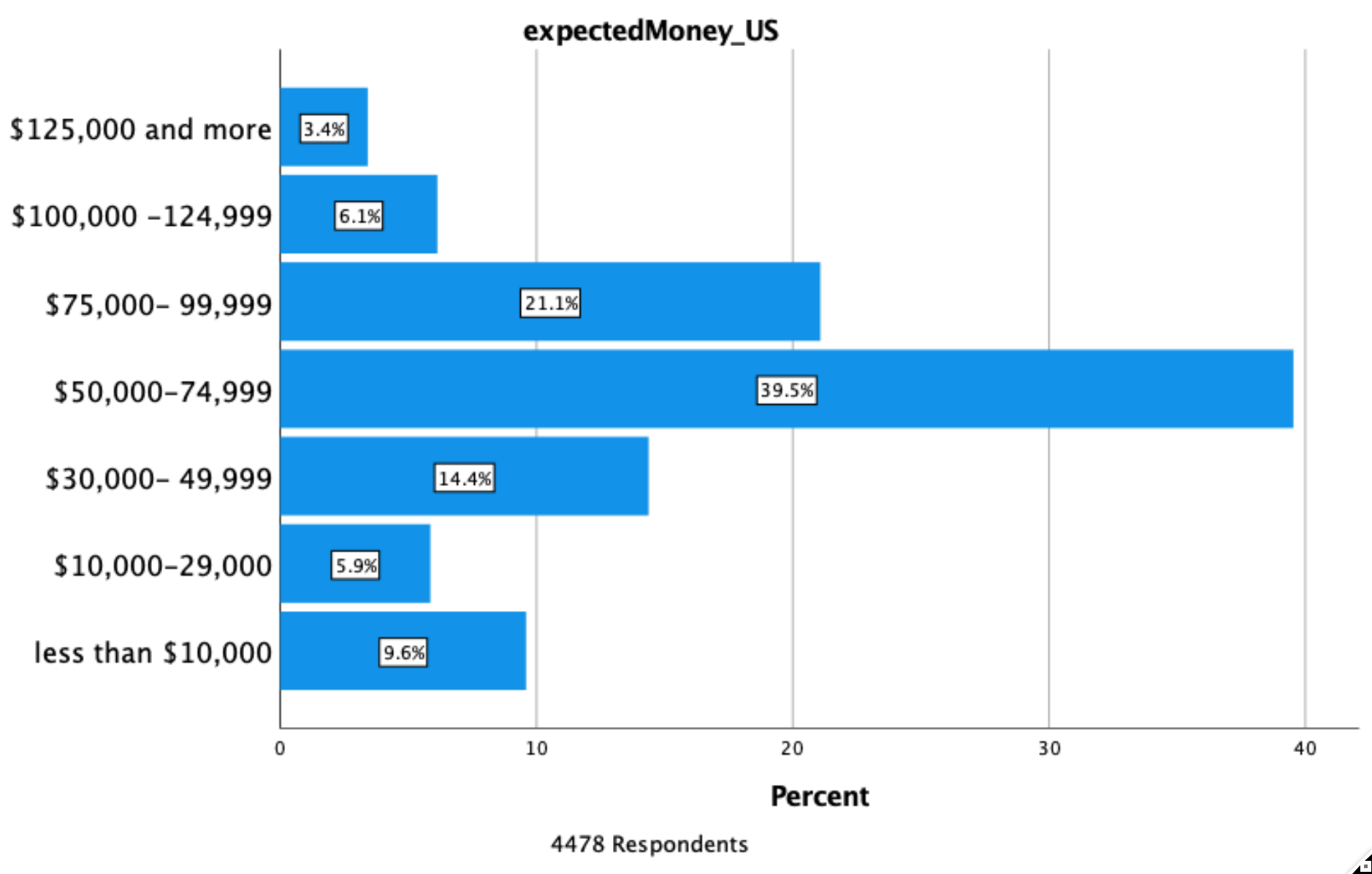
Current Careers of New Coders
New Coders who are currently working work across different fields.

At least 51% do not have enough savings to survive for 3 months with no income.
Here is how much they made last year:
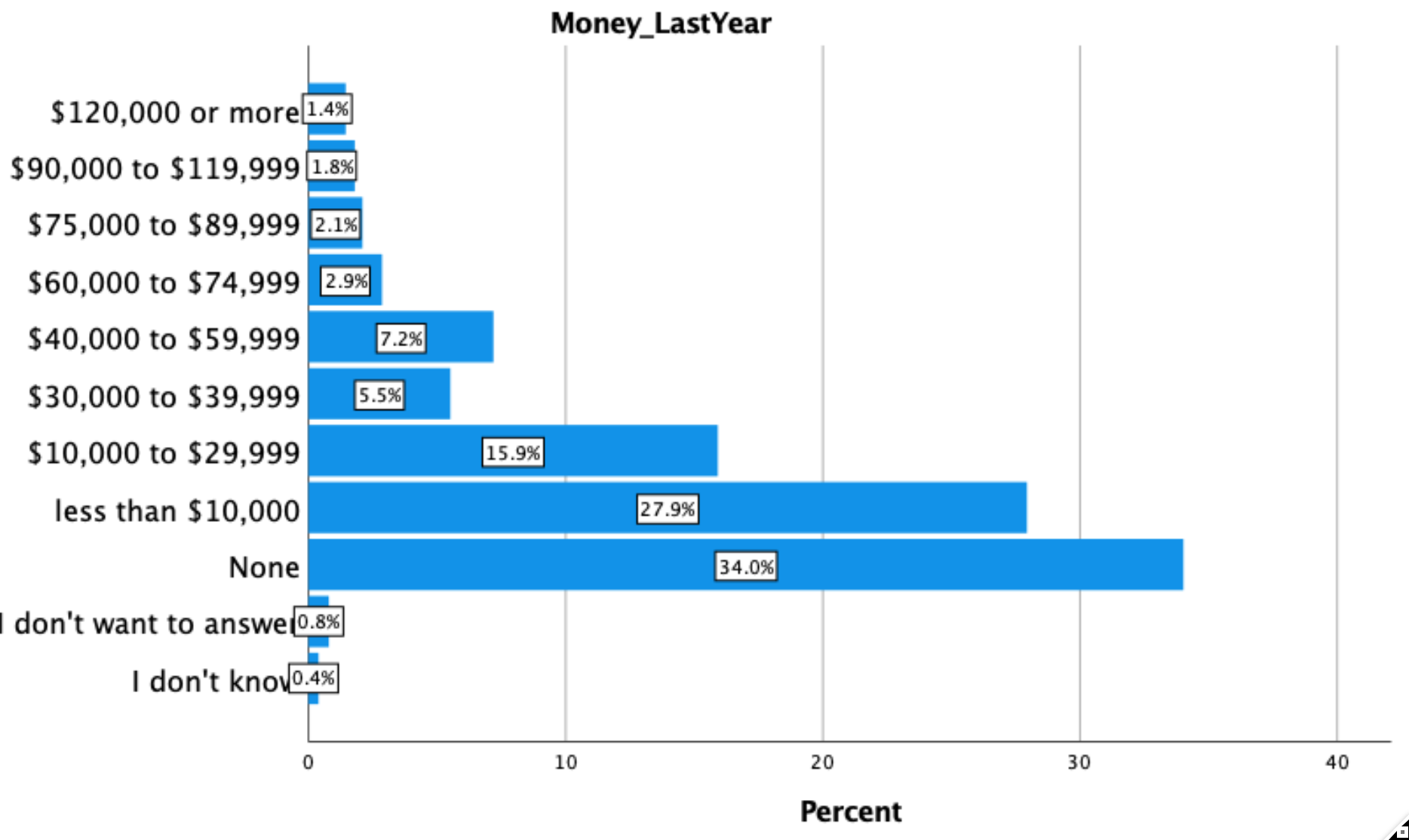
And this is how much New Coders made last year in the US. A majority earn less than US $40,000 per year.

More New Coder Demographic Data
For about 60% of New Coders, English is their second language.
- 22% are ethnic minorities in their country.
- About 75% are living in big cities.

- About 72% are single, never married.
- 82% have no children
- 17.5% do not have high speed internet at home.
- 5.6% have served in their country’s military before.
- 2.5% receive disability benefits.
Insights From the Qualitative Research
As some of you may already know, I am a sociology Ph.D. candidate at Boston University. As part of my doctoral dissertation research, many new coders graciously agreed to share their coding journey with me.
And so, over the last five months, I had the chance to meet and chat with these fantastic people across the US who are learning to code without a CS degree.
As a mixed-method researcher, I value social sciences that combine larger patterns that surveys reveal with the in-depth insights that qualitative interviews offer.
There is one caveat, though. Qualitative data take too much time to collect and analyze – especially if you like to observe changes over time, as I do. However, as I was writing this article to depict a high-level analysis of the current state of new coders, I couldn’t help myself from adding some qualitative insights about their learning strategies.
How do New Coders find time to learn?
Many coders have full-time jobs and/or caring responsibilities for their children and other dependents. So how do they make time for learning to code?
Learning to code does indeed take resilience, effort, and sacrifice. It turns out, waking up at 4 a.m. and practicing coding before the rush of the day was not uncommon among the new coders. They also tend to channel any downtime they could get into coding a little bit:
“…if I ever had downtime at work, I also took the train transit to work, so when I was on the train . . . just do little classes and little quizzes.”
“I wake up very early. I usually wake up about 4 in the morning . . . Sometimes at lunch, you know, I typically get 30 minutes to an hour at lunch, and I'll eat very quickly, and I can use my phone or a laptop, and I can practice coding for sometimes even 10 or 15 minutes at a time. Sometimes it is just 5 minutes.”
Some adopt even more creative approaches to make time for learning. Barb, a young mother of two toddlers and a 5-year-old, who also has recently recovered from Covid, integrates her learning, child care, and recovery into one activity:
“Anytime I'm reading, I read out loud. Also, for the lung, I had to do pulmonary rehab. So, it's actually great, you know, kind of kill three birds with one stone thing. Because it helps me learn to talk more naturally and pace myself. And, it also helps develop early literacy for the kids, right.
Children who [are] read to get 1.4 million more words, by the time they hit kindergarten than a child isn't read to. And it helps me to actually sit down and study because I'm not just reading for me, I’m reading to them. We get to cover some interesting topics, and they absorb more, I would say, than I ever thought.”
What kinds of projects do New Coders work on?
New coders’ first projects are products of a combination of their newly acquired technical skills and their long-lasting interests and expertise.
They are working on projects ranging from creating interactive websites for their side-businesses to building music, mental health, or natural adventure destination apps.
Henry combined his interests in Python and dice games with the joy of spending quality time with his 7-year-old daughter. A couple of weeks into his furlough due to the pandemic, father and daughter started to create a simple dice game and kept modifying and developing it over the weeks:
“I mean it was the most basic thing you've ever seen in your life. And we go back in, and we changed some of the coding to where it's a little bit more interactive. And you know, we threw in some sounds and some audio, and then tried to, you know, integrate some videos like that. It just, it was fun. . . . And I just really wanted to learn everything as much as I could learn.”
If you ever listened to or read about a software developer talking about their job, you are already familiar with the phrase “I love solving problems!”
New coders I talked to do also enjoy solving problems, but they also do something else: With their diverse backgrounds, interests, and expertise, they recognize the real-life problems that have not been recognized before.
Kevin, with his background in linguistics and philosophy, takes a new take on language learning apps. His knowledge of applied linguistics enables him to approach word-matching algorithms differently to improve the second/third language learning experience.
Barb’s passion project is a game she coded for her son to help him learn better when she discovered that reading from books might not be the best way to learn for him. And it worked! It could work for many other kids as well.
I am excited to continue following these new developers and see their perspectives contributing to, reshaping, and improving the technologies and the products we use.
More coming soon
The Survey results here only represent some descriptive analyses. We wanted to share the survey with you as soon as possible, yet there is a lot more to tell!
I will continue working on the survey and doing more statistical analyses and I'll share those insights with you. However, if you are a data enthusiast, do not wait for me, go ahead, run your own analyses, and share them with us! Again, you can access the data set on GitHub or Kaggle.
If you are curious about my research and the qualitative results beyond the descriptive snapshots, stay tuned – told you, it takes time!
Thanks to all these wonderful people who so graciously continue sharing their experiences with me. I am getting closer to answering a question many people wonder about: What does it take to become a self-taught developer?

